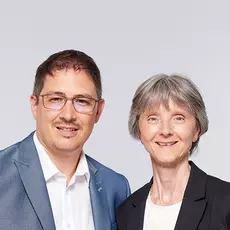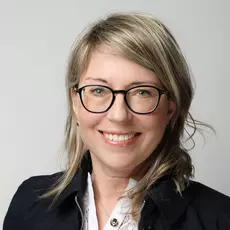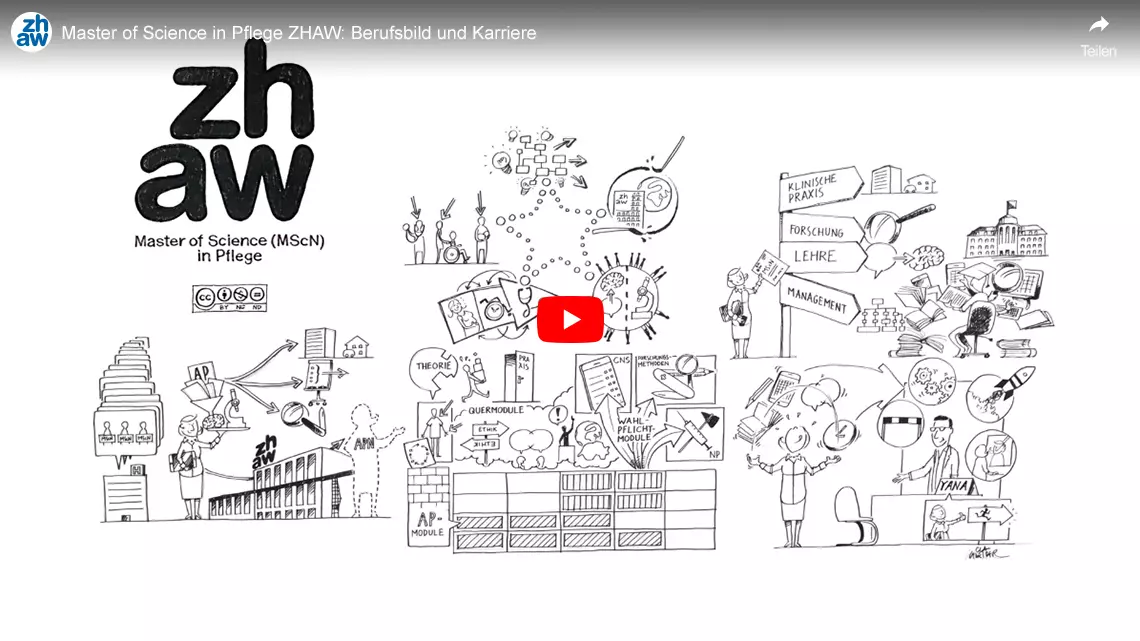Master in Nursing

«In this Master's programme, students benefit from a close relationship between teaching and research.»
Prof. Dr. André Fringer and Prof. Dr. Maria Schubert, Co-Heads, MSc in Nursing and Research Centre for Nursing Science
Become an Advanced Practice Nurse (APN) with a Master of Science in Nursing
Five good reasons for doing a Master’s degree programme at ZHAW
- The close relationship between applied research and teaching will empower you to improve the health and quality of life of people affected by ill health and their families.
- We work with our students in co-creative ways. Together, we develop ideas, implement projects, and share with you a passion for nursing expertise and nursing research on an equal footing.
- By studying together with students from other disciplines of the School of Health Sciences, you will be able to gain a comprehensive understanding of your profession.
- Guest lecturers from Switzerland and abroad will enable you to expand your national and international network.
- A Master in Nursing will enable you to anticipate and develop innovative solutions in clinical practice, research, teaching, or health care management.
Personal study counselling
Are you interested in a Master of Science in Nursing? What would be the right path for you? What prospects are opening up for you? We will be happy to take time for you and advise you free of charge and without obligation.
Master’s program in Nursing briefly explained (in German only)
Entry requirements
- Swiss Bachelor’s degree in Nursing
- Applicants without a Swiss Bachelor’s degree are considered in an equivalency procedure
- Good knowledge of English and German
With an MSc in Nursing to an Advanced Practice in Nursing qualification
With a Master of Science in Nursing, you will acquire the knowledge required for Advanced Practice as well as scientific competencies necessary for specific clinical practice, modern leadership, and practically oriented research.
Broader, more extensive roles
This programme will prepare you for the multifaceted role of the Advanced Practice Nurse (APN). As a Clinical Nurse Specialist (CNS) or Nurse Practitioner, you will use expert knowledge to analyse and deal with highly complex problem situations.
You will develop tailored professional solutions to the daily problems of patients and their families and in this way contribute actively to the change processes in health care.
Profession-specific and interprofessional
The Master’s programme and the Research Centre for Nursing Science work closely together, both in terms of their teams and activities. The research priorities of the four faculty chairs at the Institute of Nursing are embedded in the academic programmes, which results in four content-based focus areas:
- Nursing in acute care
- In-home care
- Family-centred care
- Community-based integrated care
The interprofessional modules will allow you to acquire competencies to supplement your profession-specific knowledge. In some modules, you will be studying with students from other disciplines of the School of Health Sciences. This interaction will enable you to hone your understanding of your profession and become skilled in communicating and collaborating with other professional groups
International orientation
With the international orientation of our Master's programme, we want to encourage you to learn about the role, self-image, responsibilities, and fields of activity of APNs in an international context.
A study abroad programme with partner schools all over the world gives you the opportunity to expand your international network.
Programme structure
The Master’s degree programme in Nursing is weighted at 90 ECTS (European Credit Transfer and Accumulation System) credits. It is a modular course of study consisting of four module groups: “Praxisfelder und Kompetenzen APN” (practice fields and competencies of APNs), “Advanced Practice APN”, “Forschungsmethoden” (research methods), and “Masterarbeit” (Master’s thesis).
Students have the opportunity to gain practical experience abroad to earn a further 10 ECTS credits.
The recommended duration of the full-time course of study including practical experience abroad is four semesters, and six semesters for the part-time course of study. The full-time program can also be completed in three semesters.
The languages of instruction are German and English.
Compulsory modules
In the compulsory modules, you will develop a foundation of knowledge of the role of the Advanced Practice Nurse and expand your understanding and capacity to act in the core areas of ethics and communication.
- Research methods: Scientific theory and methodology, quantitative methods, qualitative methods, statistics using R
- Advanced Practice, practical fields and competencies of APNs: Advanced Practice roles and competencies, communication and coordination, ethics, clinical assessment, and critical reasoning
Elective modules and practical experience (internship)
The elective modules will enable you to focus on your own areas of interest. You can choose from the following fields of study:
- Advanced knowledge of research methods
- Clinical Nurse Specialist
- Nurse Practitioner
In your internships, you will be guided to expand your clinical or scientific professional and methodological skills.
Master’s thesis
The Master’s thesis is an independent piece of scientific work on a topic of your choice. This topic will either be related to your area of interest or professional environment or it will be one of the topics of the Research Centre for Nursing Science. To help you complete your Master’s thesis, the university offers comprehensive support in the form of colloquiums and journal clubs, methodological and software advice, as well as individual coaching.
Double-degree programme with Universität Witten/Herdecke (UW/H)
A double-degree agreement between ZHAW and Universität Witten/Herdecke opens up new career paths for nurses and midwives.
One study programme, two degrees: Nurses and midwives who are interested in earning a Master’s degree and could imagine studying in Germany or in Switzerland can enrol in a new double-degree programme from the winter semester 2022/23 offered by ZHAW in Switzerland and Universität Witten/Herdecke (UW/H) in Germany.
Diverse perspectives
An MSc in Nursing opens up a wide scope of activities in clinical practice, research, teaching, or management. In particular, your professional activity may lie in one of the following areas:
in the specialised care of the chronically ill in acute inpatient, psychiatric, or outpatient health care facilities and long-term institutions;
in the basic care and support of the sick and their relatives in health care facilities and in the home; in organizations for the promotion of illness prevention and better health, such as in schools, in parental counselling, in companies, or in the field of addiction counselling; and in providing expert advice to nursing staff as well as other professional groups in inpatient and outpatient care.
A doctorate in Nursing
A Master of Science ZHAW in Nursing entitles you to earn a doctorate, which opens up new perspectives in research and teaching. The doctoral programme "Care and Rehabilitation Sciences", which was launched in 2018, offers all health professionals with a degree from a university of applied sciences the opportunity to do a doctorate in Switzerland. It is a well-structured postgraduate course of study in which participants acquire knowledge of the principles and methods of research at a university level and are given the opportunity to conduct a research project.
Specialisation after completing your MSc studies
Continuing education programs enable participants to deepen individual areas of expertise. The continuing education courses at ZHAW have a modular structure and can be gradually expanded to a Certificate of Advanced Studies (CAS), a Diploma of Advanced Studies (DAS), or a Master of Advanced Studies (MAS).

«Students are individually supervised based on an integrative approach of teaching, research and practice. They will become Advanced Practice Nurses who are developing and guiding sustainable professional nursing practice.»
Prof. Dr. Daniela Händler-Schuster, Professor of Community Nursing
At a glance
Degree: Master of Science ZHAW in Nursing / Master of Science in Nursing UAS Zurich
Workload: 90 ECTS credits (as well as 10 ECTS credits for the elective module “Praktikum International” (international internship)
Duration of study: four semesters of full-time study including “Praktikum International”, three semesters of full-time study, or six semesters of part-time study including “Praktikum International”
Course structure: Full-time or part-time
Start of the course: September (calendar week 38)
Registration deadline: 30 April
Teaching location: Winterthur
Language of instruction: German, English
Tuition fees: CHF 720 semester fees + additional study and living expenses
Additional information
Studying in Switzerland
Switzerland supports students from other European countries studying at the ZHAW.
International Studies
Spending a semester or a clinical placement abroad is a priceless experience for any student and offers the opportunity to learn how professions are taught and practised in other countries.
Brochure International Relations
We offer a wide range of courses for international students. Learn more about our international activities in our brochure.
Studying in Switzerland
International Studies
Brochure International Relations
Switzerland supports students from other European countries studying at the ZHAW.
Spending a semester or a clinical placement abroad is a priceless experience for any student and offers the opportunity to learn how professions are taught and practised in other countries.
We offer a wide range of courses for international students. Learn more about our international activities in our brochure.
